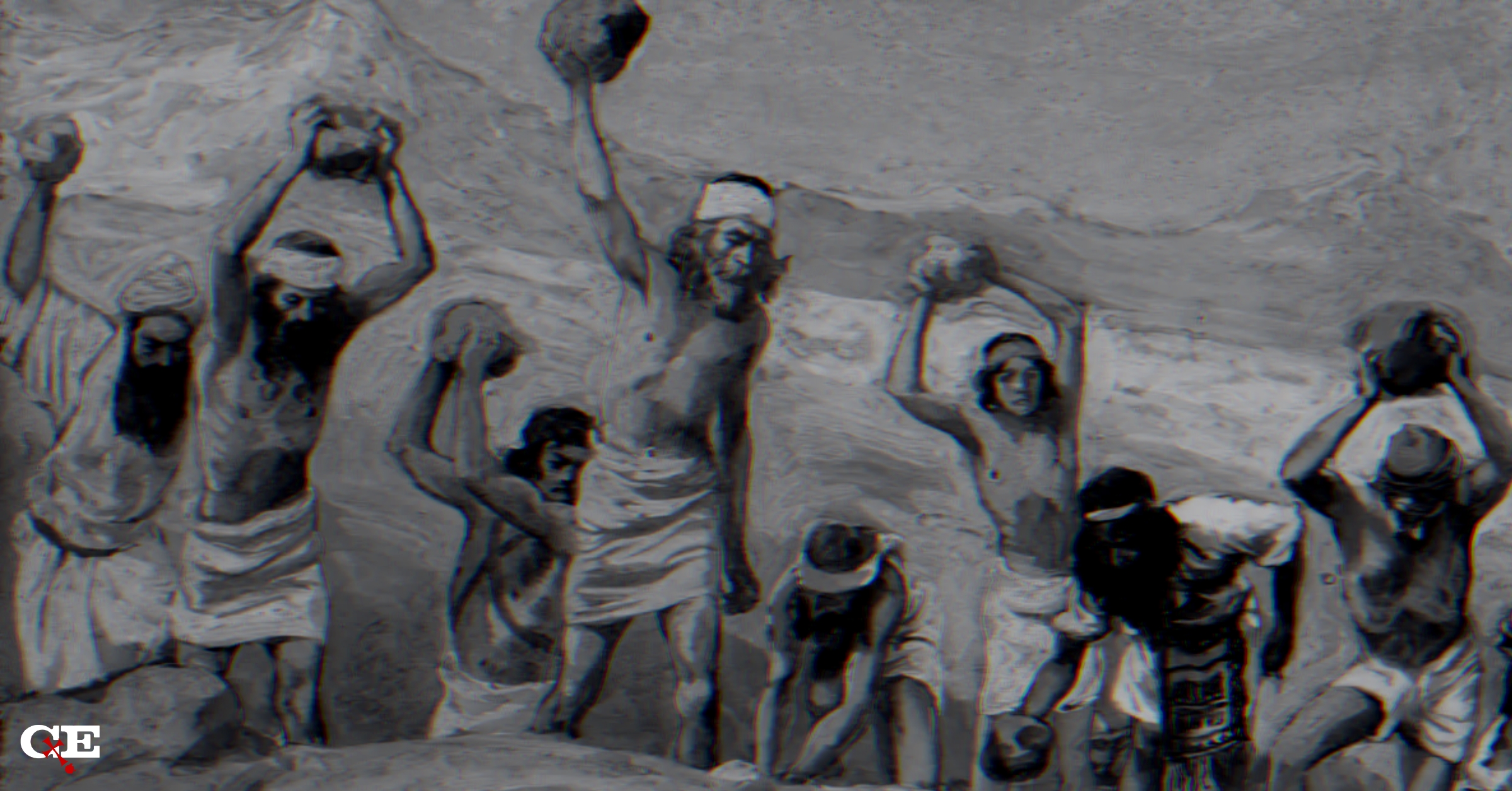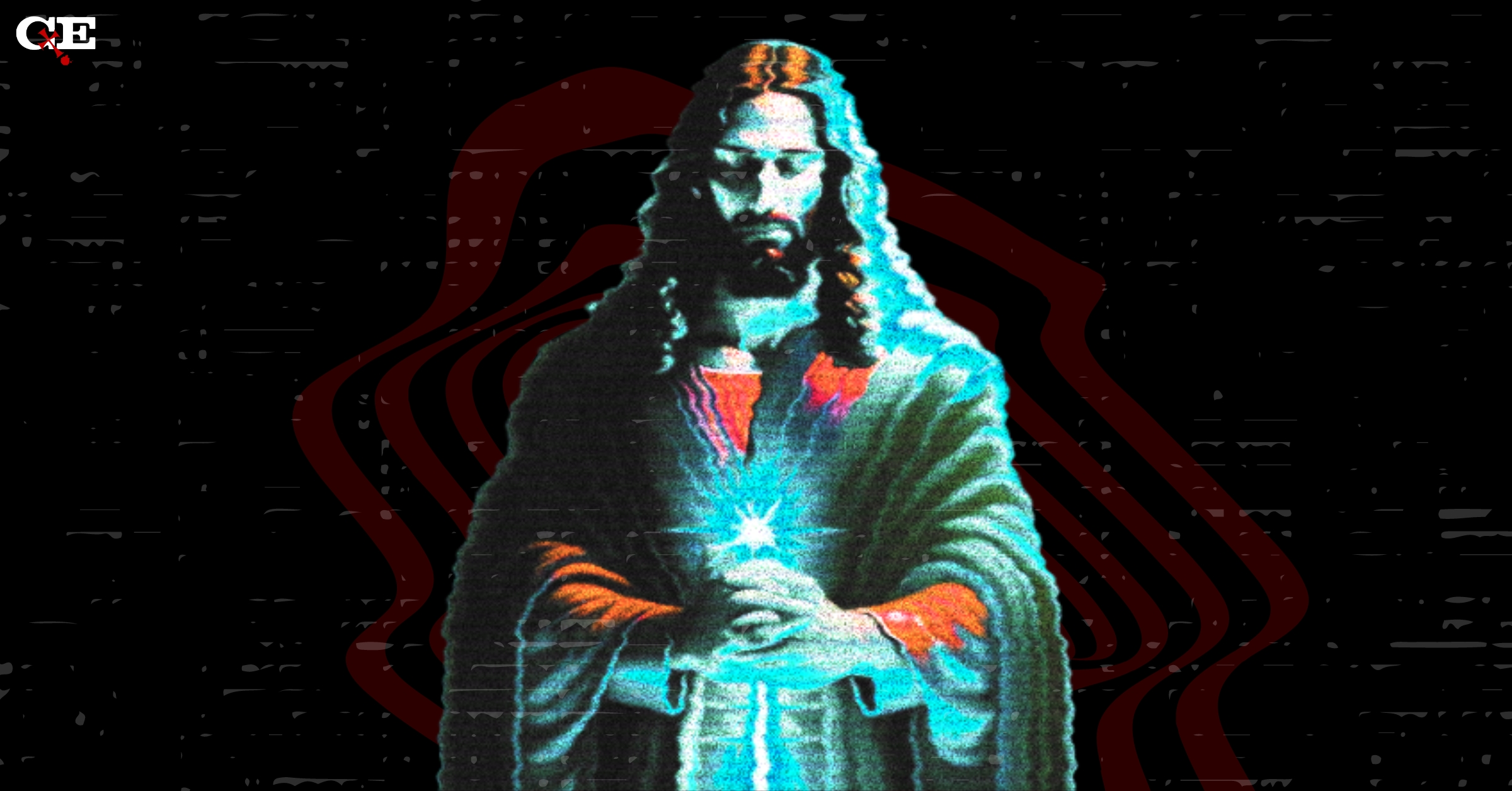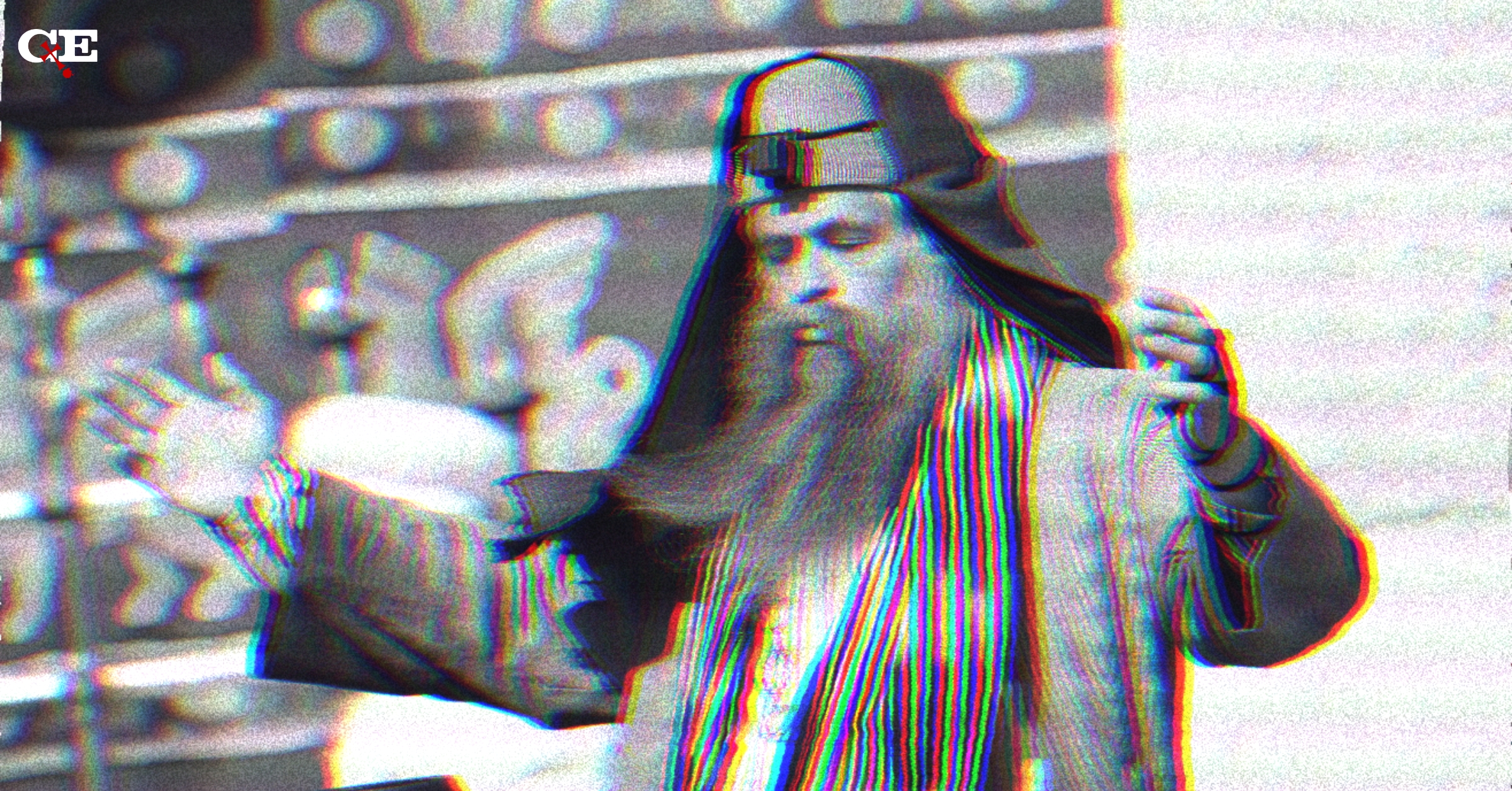The Satanic Temple (TST) is at it again. The atheistic left-wing activist group is already known for starting afterschool Satan clubs,[1] erecting unholy statues at government buildings,[2] and trying to carve out religious exemptions to pro-life laws.[3] Now they have opened an online abortion clinic.[4] Abortion clinics are not uncommon. And TST has a history of abortion activism. But this abortion clinic stands out for two reasons.
TROLL LORDS
First, the clinic is named “Samuel Alito’s Mom’s Satanic Abortion Clinic,” an obvious troll move.[5] TST is so well-known for trolling it is not just a side quest, but a lifestyle.[6] Their inception, according to the New York Times, was designed as “a mischievous thorn in the side of conservative Christianity.”[7] Stated positively, they could teach a masterclass on trolling. They take adolescent snark, infuse agitational protesting, incorporate theatrics, and beef it up with a cadre of lawyers till it becomes a whole socio-political methodology. And make no mistake, they are dead serious about it.
For TST, trolling is a mode of political activism advancing their ideology, which they expound as Seven Fundamental Tenets.[8] These guiding statements are roughly what could be expected at the crossroads of progressive politics and New Atheism. So far, their primary focus has been religious freedom in the public square. Their trolling is a way of stretching “religious freedom” till it breaks. Instead of supporting robust religious freedom where Christianity, the majority religion, holds a measure of cultural privilege and influence in the public square, TST aims at a more austere separation of church and state. This Troll Lord approach has not yet blown up in their faces. But this abortion clinic might be the spark that does it.
RITUAL ABORTION
The second reason distinguishing this clinic is that it treats abortion as a religious ritual. In their own words: “Samuel Alito’s Mom’s Satanic Abortion Clinic™ is an online clinic that provides religious medication abortion care. The clinic provides abortion medication via mail to those in New Mexico who wish to perform The Satanic Temple’s Religious Abortion Ritual.”[9]
Yes, TST abortion services are touted as “religious rituals,” but these are not surgical abortions with blood-smearing child sacrifices. This is an online mail-order clinic. The New England-based Satanic Temple offers only medication (pill) abortion[10] through an unnamed pharmacy in New Mexico. The “rituals” are something between semi-religious motivational self-talk on one end and a legal formality on the other.[11]
First, TST is protesting the oft-scorned U.S. Supreme Court case, Dobbs v. Jackson Women’s Health Organization (2022).[12] The clinic’s namesake, Justice Samuel Alito, penned the majority decision in Dobbs, the monumental ruling that overturned both the Roe v. Wade (1973)[13] and Planned Parenthood v. Casey (1992)[14] decisions.
Second, TST maintains they are helping to fill a healthcare void for women as states roll back abortion-choice laws in the post-Roe era. Even in pro-choice states like New Mexico (as of 2023), where TST’s clinic is based, these medication abortion services, supposedly, could offer more privacy and access than is currently available at traditional abortion clinics.
Third, they are potentially circumventing future anti-abortion laws through a religious exemption. If a woman identifies as a TST member, then, theoretically, she could bypass abortion bans and get an abortion under the protection of First Amendment “religious freedom.” Her federal-level right could bypass state-level anti-abortion laws.[15]
Fourth, they stand to grow their membership if this religious exemption route works. If they can carve out a federally protected religious exemption against state-level abortion laws, then they will have effectively overturned the Dobbs decision, but only for members of The Satanic Temple. That is a strong incentive for people to join TST.
Fifth, TST stands to make a fortune from tax-exempt “religious” donations, as abortion-choice activism is a left-wing goldmine right now.[16]
Sixth, beyond just exploiting religious tax exemptions, they might explode them. Religious tax exemptions have their basis in a pluralistic “religious freedom” interpretation of the First Amendment. But opposing that view is the secular sense of “separation of church and state.” In this view, the First Amendment is thought to mandate strictly secular governance.[17] Judicial history favors the pluralistic view.[18] TST seems to favor the secular view. TST could make religious tax exemptions so offensive that all such exemptions are revoked.
Strategically speaking, by calling their abortion services a “religious ritual,” they stand to benefit materially and advance their cause, at least in the short term. But they may have overplayed their hand. There are brands of Satanism that practice “black” magic and or believe in a literal Satan.[19] TST, however, is not one of them. There are different denominations, so to speak, of Satanism; and while some arguably have a place for , The Satanic Temple is not like that.[20] TST does not see their rituals as child sacrifices to Satan since they do not believe God or Satan exist. Yet in claiming abortion as a satanic ritual, they can .
HEALTH RISKS WITH PILL ABORTIONS
Medically speaking, TST risks undercutting their pro-choice aims by aligning with an especially dangerous abortion method. At a surface level, they are proudly pro-choice. And opening an abortion clinic is very pro-choice. That seems consistent enough. But, at a deeper level, they are also trying to promote women’s health. In their words, “TST is taking many steps…to establish exemptions from laws that do not promote the health and safety of patients.” [21] They also try to conform their beliefs to the “best scientific understanding of the world” and “strive to act with compassion and empathy toward all creatures in accordance with reason.”[22] But medication abortion significantly increases health risks for mothers.[23] That is not very compassionate, empathetic, or healthy. These increased risks can be difficult to see through a partisan political lens, but with an eye for humanitarianism and good solid science, the risks become evident. What are those health risks?
First, if a woman has a tubal (ectopic) pregnancy, the pill regimen will very likely not work on her.[24] She will remain pregnant with a looming fatal complication. But because she had the abortion pill, she believes she is no longer pregnant, and she may well not know she is in harm’s way.
Second, if women use abortion pills to secure an abortion without clinical visits, they can unwittingly terminate future pregnancies, rendering themselves infertile if they are Rh-negative.[25] The blood type Rh-negative (i.e., A-negative, B-negative, AB-negative, and O-negative blood) is a common blood type affecting 15 percent of the population. It often lingers undetected without affecting one’s health. A pregnant woman seeking chemical abortion may never know she is Rh-negative. But with that condition she will need Rh D immune globulin (RhoGAM) at the time of her pill regimen.[26] Otherwise, her body will form “antibodies against the fetal blood cells, which can result in catastrophic immune rejection of the fetus in a subsequent pregnancy.”[27] Medication abortion would not just complicate this pregnancy but imperil future pregnancies, causing stillbirths, neonatal deaths, and brain injuries, and can make her infertile.[28]
Third, medication abortions are self-administered. The first pill, mifepristone, may or may not be given in the clinic. But the second pill is self-administered, at home two days later. That pill, misoprostol, is the primary active agent expelling the pre-term child. A host of side-effects routinely happen at this stage.[29] But being at home, she has no direct clinical supervision. The pregnant mother has to guess whether her bleeding, cramping, nausea, and so forth are bad enough for a visit to the emergency room. She is not a licensed physician, and likely not experienced with this sort of thing. She cannot be expected to know when her severe cramping is too severe or when a lot of bleeding becomes too much bleeding. Nor can she be expected to know if the abortion was complete. Yet any remains left in-utero can cause further complications, such as infection, sepsis, or death. If she is using chemical abortion to keep her pregnancy a secret or to stay anonymous, then even if she goes to the emergency room for complications, as she should, she will likely have to drive herself. Severe cramping and hemorrhaging become doubly dangerous when you are stuck in traffic. Moreover, she will lose minutes, perhaps hours, at a time when seconds count. Additionally, chemical abortion risks are likely much higher than reported due to hospitals misreporting chemical abortion complications as miscarriage complications.[30]
Furthermore, chemical abortion is designed for early-stage abortions, up to 49 days (seven weeks). Even Planned Parenthood says that after eleven weeks, pill abortion is not recommended.[31] Its effectiveness declines between eight and eleven weeks, from about six percent to thirteen percent chance of failure.[32] Beyond that threshold, effectiveness drops, and complication rates worsen. All these facts together explain why medication abortions generate roughly four times more medical complications and injuries compared to surgical abortions.[33] These risks also help explain why the FDA currently faces challenges before the U.S. Supreme Court for rolling back medical regulations surrounding pill abortion (see FDA v. Alliance for Hippocratic Medicine and Danco Laboratories v. Alliance for Hippocratic Medicine).
Fourth, coerced abortion is not “pro-choice.” Yet self-administered abortions are notoriously difficult to screen for coercion. Pregnant women are often pressured into an abortion by an abuser, a partner, parents, or friends. Abusers can use abortion to destroy evidence that might otherwise incriminate them for rape or molestation. For parents it may be a way to protect the reputation of the family, or to punish the daughter. Or it could just be an overbearing or negative influence pressuring her into an abortion. A 2023 peer-reviewed study showed that only 33% of women who had abortions wanted their abortion, and 24% of women surveyed described their abortion was coerced[34] Abortion-choice advocacy, TST included, hinges on abortion being a choice. But compared to pro-choice rhetoric, the ugly reality of coerced abortion tells a different story. Women are exploited for sexual gratification, then tossed aside to fend for themselves, or threatened with abandonment, or abused till they kill their children-in-utero. That is a far cry from women’s liberation.
The convenience and privacy of pill abortions can make them sound like a panacea for sexually liberated society. But the reality is not so pretty. Pill abortion means less medical supervision, more coercion and social isolation, and around 400 percent more complications and injuries for women. In this way, The Satanic Temple is drifting into a basic pro-abortion posture at the expense of being “pro-science,” “pro-choice,” and “pro-woman.” If the TST really wants to promote women’s health and freedom while staying pro-choice, they should at least wait till chemical abortion and health regulations improve so TST isn’t left contradicting their own aims.
BAD PRESS FOR PRO-CHOICE
Besides the heightened health and social risks with pill abortions, there is a glaring publicity problem with satanic ritual abortions. When people hear about the “Satanic Abortion Ritual,” they are liable to interpret it as child sacrifice. That is not what TST is trying to do here, but that is still how their marketing sounds. Yet any affiliation between abortion and child sacrifice is bad press for the pro-choice cause.
Most pro-lifers already believe abortion is child sacrifice — metaphorical or not, intentional or not. From a pro-life Christian perspective, abortion-choice culture looks like modernized Molech worship (Lev. 18:21; 20:2–5; Deut. 12:31; 18:10; Jer. 7:31; Ezek. 16:20–21). Instead of sacrificing born babies on the temple altar to Satan’s hoards, The Satanic Temple is sacrificing preborn babies on the altar of convenience. They are not just helping women with their abortions; they are enlisting women to perform satanic ritual abortions.
In this way, The Satanic Temple is stepping on a rake of their own making. They are declaring abortion to be a satanic ritual, just like pro-life Christians have warned all along. Sure, TST might think this ritual is little more than a self-help therapy session; but people don’t have to believe in Satan to do his bidding.
SUMMONING TASH
In C. S. Lewis’s Narnia-series classic, The Last Battle (1956), Lewis portrays an epic showdown where a few opportunistic tricksters perform a summoning ritual for a false god named Tash. They don’t even believe in Tash. They go through the motions, pretending to summon Tash, to trick the audience. But lo and behold, Tash arrives. And he is terrifying. Some Tash followers were insincere, playing games on the spiritual battlefield, taking none of this religious stuff seriously. Yet they still served Tash. In the same way, one does not have to believe in Satan to serve him. One does not have to believe in spiritual warfare to be victimized by it either. Worse yet, people can blindly victimize others thinking they are helping. The abortion-choice campaign in the U.S. alone has devoured over 65,000,000 innocent casualties, largely under the banner of empowering women.[35] Slick marketing or a slippery slope, it’s the same difference. Murderous evil can march under right-wing or left-wing banners, religious or secular, human or divine. Yet the test for discerning evil is not in winsome rhetoric, party allegiance, or good intentions, but whether that act is in fact evil.
It matters little whether TST advocates believe in a literal Satan, or in ritual child sacrifice. They can perform child sacrifice to Satan all the same. In this way, TST is inadvertently embracing some of the most pointed critiques against abortion-choice.
People can be casualties, and unwittingly create casualties, without even knowing a war is raging. People can do all sorts of consequential things, without recognizing the weight of their actions till it is too late. They can even sacrifice living human beings to a false god and a real demon, without believing in gods or demons.
FINAL THOUGHTS
The Satanic Temple is predictably doing what they have done before, exploiting their cartoonishly dark and villainous branding to agitate the public and pester the Christian Right into a judicial showdown. Only this time, they have gone so far to bait the Christian Right; they have come full circle. They stepped into the crosshairs of one of the fiercest critiques abortion-choice has ever faced. All those abortions they helped facilitate, killing new human beings every time, and all the harms to women emotionally, socially, and physically because of those abortions — all of that behavior will ultimately weigh on every Satanic Temple member (or anyone else) who helps make it happen. I don’t mean to sound like a fear-baiter. I just say that as a warning against the hubris of scientifically ill-informed activism. No amount of good intentions can redeem bad policy. And for all the value found in bodily autonomy, which TST affirms, it does not excuse deliberately killing tiny, innocent, defenseless human beings. If we, as a society, are going to live up to the huge responsibility of humanitarianism, we need to prioritize protecting the most defenseless members of society from discrimination, oppression, and especially targeted killing. That includes sex-selective killing, race-based killing, ability-based killing, exploitation of women, and child abuse. Abortion-choice policy fails on all those accounts.[36] If TST were more consistent with their own stated values, they would walk back this pill-abortion clinic. And if we as a society were more serious about humanitarianism, we could admit that women deserve better than the septic social band-aid of abortion-choice policy.
REFERENCES:
[1] Joe Bukuras, “Judge Orders PA District to Allow After School Satan Club to Meet on School Grounds,” Catholic News Agency, May 4, 2023, https://www.catholicnewsagency.com/news/254246/judge-orders-pa-district-to-allow-after-school-satan-club-to-meet-on-school-grounds.
[2] James Farrell, “Why a Satanic Holiday Display at the Iowa Capitol Building Has Been Allowed to Stay Up Despite Backlash,” Forbes, December 13, 2023, https://www.forbes.com/sites/jamesfarrell/2023/12/13/why-a-satanic-holiday-display-at-the-iowa-capitol-building-has-been-allowed-to-stay-up-despite-backlash/.
[3] Daniel Payne, “Satanic Temple Loses Lawsuit against Indiana Pro-life Law,” Catholic News Agency, October 27, 2023, https://www.catholicnewsagency.com/news/255839/satanic-temple-loses-lawsuit-against-indiana-pro-life-law.
[4] “Samuel Alito’s Mom’s Satanic Abortion Clinic,” The Satanic Temple (2023), accessed January 10, 2024, https://thesatanictemple.com/pages/samuel-alitos-moms-satanic-abortion-clinic.
[5] Co-founder of TST Malcom Jarry said, “in 1950, [Supreme Court Justice] Samuel Alito’s mother did not have options and look what happened.” John Lavenburg, “New Mexico’s Bishop’s Shudder at Prospect of ‘Satanic’ Abortion Clinic,” Crux, February 10, 2023, https://cruxnow.com/church-in-the-usa/2023/02/new-mexicos-bishops-shudder-at-prospect-of-satanic-abortion-clinic.
[6] This reputation for “trolling” appears in their “Frequently Asked Questions” page. They don’t evade accusations of “trolling” and deny it’s merely for attention. TST, “Frequently Asked Questions: Is TST a Media Stunt/Hoax/Trolling, Etc.?,” The Satanic Temple, c. 2019, https://thesatanictemple.com/pages/faq. For an unofficial list of TST activist trolling, see “Timeline of The Satanic Temple,” SFGate, January 9, 2019, https://www.sfgate.com/nation/slideshow/Timeline-of-the-Satanic-Temple-188753.php.
[7] Mark Oppenheimer, “A Mischievous Thorn in the Side of Conservative Christianity,” New York Times, July 11, 2015, https://www.nytimes.com/2015/07/11/us/a-mischievious-thorn-in-the-side-of-conservative-christianity.html.
[8] “There Are Seven Fundamental Tenets,” The Satanic Temple, accessed January 8, 2024, https://thesatanictemple.com/blogs/the-satanic-temple-tenets/there-are-seven-fundamental-tenets.
[9] “Samuel Alito’s Mom’s Satanic Abortion Clinic,” The Satanic Temple.
[10] Or medication-induced abortion, also known as chemical abortion, medical abortion, and pill abortion (by the “abortion pill”). For TST’s explanation of medication abortion, see “Medication Abortion,” TST Health (2023), accessed January 10, 2024, https://www.tsthealth.org/resources#medicationabortion.
[11] See “Satanic Abortion Ritual,” TST Health, accessed January 10, 2024, https://static1.squarespace.com/static/63b68c961da991700b94e8b7/t/63eac53263f3c063df3e1675/1676330291874/TST+Health+-+Satanic+Abortion+Ritual+Flyer-2.pdf.
[12] Dobbs v. Jackson Women’s Health Organization, 597 U.S. 215 (2022), Majority Opinion Justice Samuel Alito, https://www.supremecourt.gov/opinions/21pdf/19-1392_6j37.pdf.
[13] Roe v. Wade, 410 U.S. 113 (1973), https://www.law.cornell.edu/supremecourt/text/410/113.
[14] Planned Parenthood of Southeastern Pa. v. Casey, 505 U.S. 833 (1992), https://www.law.cornell.edu/supct/html/91-744.ZS.html.
[15] See “How Is the Satanic Abortion Ritual Legally Protected?” and other (linked) statements in “The Satanic Temple: Religious Reproductive Rights,” The Satanic Temple (c.2023), accessed January 11, 2024, https://thesatanictemple.com/pages/rrr-campaigns.
[16] If they utilize religious tax exemptions, they can make even more money. They wouldn’t have to accept payment for abortion services, per se, but merely accept (tax-exempt) donations to run the clinic. As of January 2024, TST is hosting a fundraiser for the clinic. See “Supreme Courtship: A Fundraiser in Support of Samual Alito’s Mom’s Abortion Clinic,” The Satanic Temple, accessed January 8, 2024, https://thesatanictemple.com/pages/supreme-courtship.
[17] The Freedom From Religion Foundation is a clear example of this “secular state” interpretation of religious freedom, nicknamed here as “separation of church and state.”
[18] The “Lemon Test” (Lemon v Kurtzman, 1973) notwithstanding; Supreme Court history has favored a broad sense of “freedom of religion” where people are not forced by the state to participate in religious activity but, if they choose, can freely and publicly exercise their religion as an individual and communal expression of their 1st Amendment rights. For example, see Cantwell v Connecticut (1940); WV Board of Education v Barnett (1943); Emerson v Board of Education (1947); Torcaso v Watkins (1961); Sherbert v Verner (1963); Lynch v Donnelly (1984); Oregon v Smith (1990); Burwell v. Hobby Lobby (2014); and Kennedy v Bremerton (2022).
[19] Satanic groups that affirm magic include LaVeyan Satanism (Church of Satan), Temple of Set, Luciferians, the Order of Nine Angels, and others. Unofficially, even the Satanic Temple allows magical practice among its members. If a TST member practiced magic, that’s not heresy or heterodoxy for them, it’s just not formally affirmed by TST. See, e.g., “Can I Join TST If I Have Supernatural Beliefs?,” FAQ, The Satanic Temple, accessed January 8, 2024, https://thesatanictemple.com/pages/faq.
[20] See “Can I Join TST If I Have Supernatural Beliefs?” Archaeological remains confirm that human sacrifice occurred in Mesoamerica, mostly victimizing military-age males but with about five percent of them being children. Lizzy Wade, ““Feeding the Gods: Hundreds of skulls Reveal Massive Scale of Human Sacrifice in Aztec Capital,” Science, June 21, 2018, https://www.science.org/content/article/feeding-gods-hundreds-skulls-reveal-massive-scale-human-sacrifice-aztec-capital.
Similar archaeological findings confirm that child sacrifice occurred and was well known in the ancient world. Robin Ngo, “Did the Carthaginians Really Practice Infant Sacrifice,” Biblical Archaeological Society, July 27, 2020, https://www.biblicalarchaeology.org/daily/ancient-cultures/did-the-carthaginians-really-practice-infant-sacrifice/.
These findings reinforce biblical reports that disdainfully describe this practice as an abomination (see, e.g., Lev. 20:2–5; Isa. 30:33; Jer. 19:12). It even becomes an indictment against Israel when the people and their kings adopt neighboring pagan religions, including ritual child sacrifice (2 Kings 21:6; 2 Chron. 28:1–4; Jer. 32:35). In some parts of the world child sacrifice is still practiced in recent times. Tonny Onyulo, “In This Nation, Children’s Body Parts Are Sacrificed for Witchcraft,” USA Today, May 1, 2017, https://www.usatoday.com/story/news/world/2017/05/01/uganda-human-children-sacrifice/100741148/.
While child sacrifice is reasonably well proven, it is more difficult to establish verified ties between Satanism and child sacrifice. The “Satanic Panic” of the late 1970’s and 1980’s muddied the waters here, undoubtedly sensationalizing and likely exaggerating the threat of “Satanic Ritual Abuse.” One Justice Department report on Satanic Ritual Abuse (SRA) explains the conundrum, “Although evidence increasingly shows SRA exists, clinicians working with individual patients cannot be sure if they are dealing with fact or fantasy.“ C. A. Ross, “Satanic Ritual Abuse: Principles of Treatment,” U.S. Department of Justice (1995), https://www.ojp.gov/ncjrs/virtual-library/abstracts/satanic-ritual-abuse-principles-treatment.
Nevertheless, from a Christian perspective, all the false gods who feed on child sacrifice in the Ancient Near East (Molech, Chemosh, Dagon, Baal, etc.) are derivations more or less of Satan — whether being different “infernal names” for Satan and his hoards, or being false gods embodying the adversarial, false, and ungodly aims of Satan’s minions (see, Anton Levay, Satanic Bible [San Francisco: William Morrow paperbacks], 43–45). Even when some self-identified Satanists like the Order of Nine Angels allegedly endorse “human sacrifice,” since they are a dark society, cloaked in mystery, it’s difficult to tell what is mere talk, gossip, and legend, versus what is real. Moreover, the TST could even formally disavow all child sacrifice, using “ritual” language entirely as a judicial ruse, yet if they’re facilitating child-killing under the banner of Satanism, they’re still doing Satan’s bidding — serving a literal Satan whom they don’t believe in.
[21] “The Satanic Temple: Religious Reproductive Rights,” at: https://thesatanictemple.com/pages/rrr-campaigns?gclid=Cj0KCQiAn-2tBhDVARIsAGmStVl2_YhcBMVfAzcuEXhrZ2vtuY5_RmtL5XsliAjklaSeXx-pCJ2TG_MaAr5vEALw_wcB
[22] Tenets V and I, respectively, in “There Are Seven Fundamental Tenets,” The Satanic Temple, accessed January 8, 2024, https://thesatanictemple.com/blogs/the-satanic-temple-tenets/there-are-seven-fundamental-tenets.
[23] Margaret M. Gary and Donna J. Harrison, “Analysis of Severe Adverse Events Related to the Use of Mifepristone as an Abortifacient,” Annals of Pharmacotherapy 40, 2 (2006), https://doi.org/10.1345/aph.1G481, full paper is accessible via American Association of Pro-Life Obstetricians and Gynecologists, https://www.aaplog.org/wp-content/uploads/2011/07/MifeSAEharrison-pdf-copy.pdf; see also American College of Pediatricians, “Chemical Abortions: With and Without Medical Supervision,” Issues in Law & Medicine 38, 1 (2023): 77–106, https://issuesinlawandmedicine.com/articles/chemical-abortions-with-and-without-medical-supervision/.
[24] Gary and Harrison explain, “Ectopic pregnancy is an absolute contraindication to the use of mifepristone.” Gary and Harrison, “Analysis of Severe Adverse Events Related to the Use of Mifepristone as an Abortifacient”; see also “Questions and Answers on Mifepristone for Medical Termination of Pregnancy through 10 Weeks Gestation,” U.S.A. Food and Drug Administration (FDA), March 3, 2023, https://www.fda.gov/drugs/postmarket-drug-safety-information-patients-and-providers/questions-and-answers-mifepristone-medical-termination-pregnancy-through-ten-weeks-gestation; cf. Julia Oltman et al., “Have We Overlooked the Role of Mifepristone for the Medical Management of Tubal Ectopic Pregnancy?, Human Reproduction 38, Issue 8, (2023): 1445–1448, https://doi.org/10.1093/humrep/dead116.
[25] Ingrid Skop, “The Evolution of ‘Self-Managed’ Abortion: Does the Safety of Women Seeking Abortion Even Matter Anymore?,” Charlotte Lozier Institute, March 1, 2022, https://lozierinstitute.org/the-evolution-of-self-managed-abortion/.
[26] “Practice Bulletin 181: Prevention of Rh D Alloimmunization,” Obstetrics & Gynecology 130, no. 2 (2017), 481–483, https://doi.org/10.1097/AOG.0000000000002232.
[27] Skop, “The Evolution of Self-Managed Abortion.”
[28] Skop, “The Evolution of Self-Managed Abortion.”
[29] American College of Pediatricians, “Chemical Abortions: With and Without Medical Supervision.”
[30] Christina A. Cirucci, Kathi A. Aultman, Donna J. Harrison, “Mifepristone Adverse Events Identified by Planned Parenthood in 2009 and 2010 Compared to Those in the FDA Adverse Event Reporting System and Those Obtained Through the Freedom of Information Act,” Health Services Research and Managerial Epidemiology 8 (2021), https://doi.org/10.1177/23333928211068919.
[31] “The Abortion Pill,” Planned Parenthood, accessed January 8, 2024, https://www.plannedparenthood.org/learn/abortion/the-abortion-pill.
[32] “The Abortion Pill,” Planned Parenthood.
[33] Maarit Niinimäki et al., “Immediate Complications after Medical Compared with Surgical Termination of Pregnancy,” Obstetrics & Gynecology 114, no. 4 (2009): 795–804, https://doi.org/10.1097/AOG.0b013e3181b5ccf9; Ushma D. Upadhyay et al., “Incidence of Emergency Department Visits and Complications after Abortion,” Obstetrics & Gynecology 125, no. 1 (2015): 175–183, https://doi.org/10.1097/AOG.0000000000000603. For a summary of the increased risks involved in medication abortion over surgical abortion, see “Fact Sheet: Risks and Complications of Medical Abortion,” Charlotte Lozier Institute, July 19, 2022 (updated August 23, 2023), https://lozierinstitute.org/fact-sheet-risks-and-complications-of-chemical-abortion/.
[34] Coercion, like consent, can be difficult to prove, especially if the victim is still protecting their abuser, or still under threat from them. Nevertheless, Reardon, et al., summarize their findings saying: “33% identified [the abortion] as wanted, 43% as accepted but inconsistent with their values and preferences, and 24% as unwanted or coerced.” See, David C. Reardon, Katherine A. Rafferty, Tessa Longbons, “The Effects of Abortion Decision Rightness and Decision Type on Women’s Satisfaction and Mental Health,” Cureus 15, no. 5 (2023), abstract, https://doi.org/10.7759/cureus.38882. David C. Reardon, et al., “Hidden Epidemic: Nearly 70% of Abortions are Coerced, Unwanted, Or Inconsistent with Women’s Preferences,” Lozier Institute (15 May 2023), https://lozierinstitute.org/hidden-epidemic-nearly-70-of-abortions-are-coerced-unwanted-or-inconsistent-with-womens-preferences/
[35] Based on trends in “Abortion Statistics: United States and Trends,” National Right to Life, January 2023, https://www.nrlc.org/uploads/factsheets/23StatsFS.pdf.
[36] Abortion is literally fatal child abuse. Sex-selective, race-based, and ability-based abortion are all legal in the U.S.
Recommended resources related to the topic:
Legislating Morality (DVD Set), (PowerPoint download), (PowerPoint CD), (MP3 Set) and (DVD mp4 Download Set)
Does Jesus Trump Your Politics by Dr. Frank Turek (mp4 download and DVD)
Sex and Your Commanding Officer (DVD) (Mp4 Download) by Dr. Frank Turek
Jesus vs. The Culture by Dr. Frank Turek DVD, Mp4 Download, and Mp3
__________________________________________________________________________________________________________________________
Dr. John D. Ferrer is an educator, writer, and graduate of CrossExamined Instructors Academy. Having earned degrees from Southern Evangelical Seminary and Southwestern Baptist Theological Seminary, he’s now active in the pro-life community and in his home church in Pella, Iowa. When he’s not helping his wife Hillary Ferrer with her ministry Mama Bear Apologetics, you can usually find John writing, researching, and teaching cultural apologetics.
Original Blog Source: https://bit.ly/48mii4y










